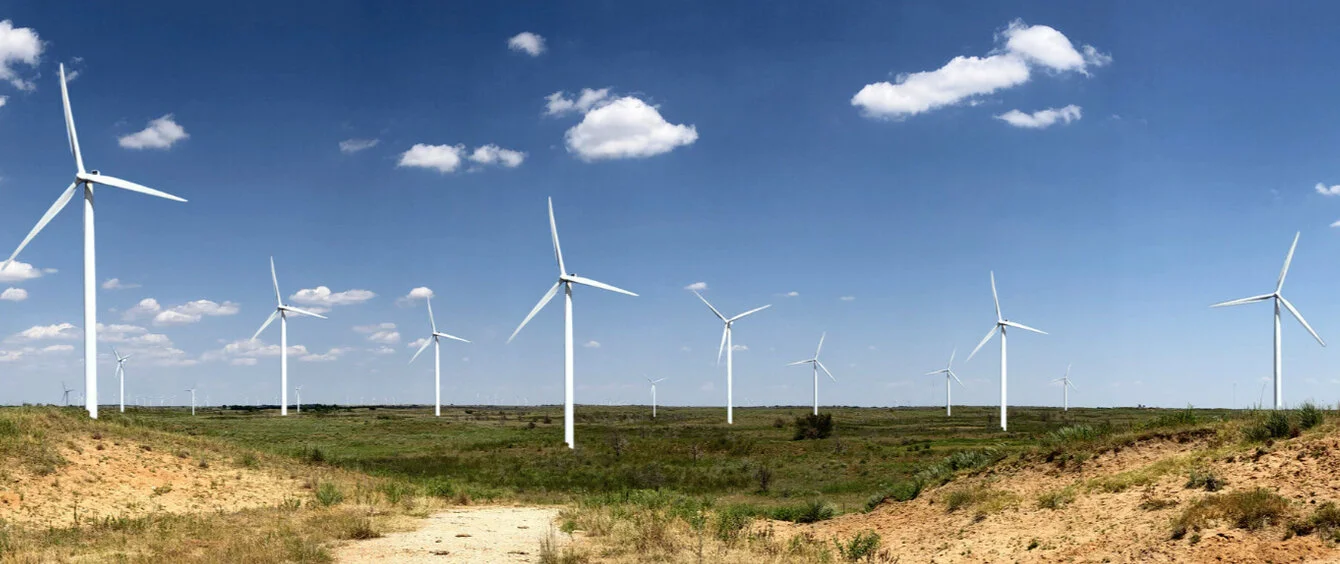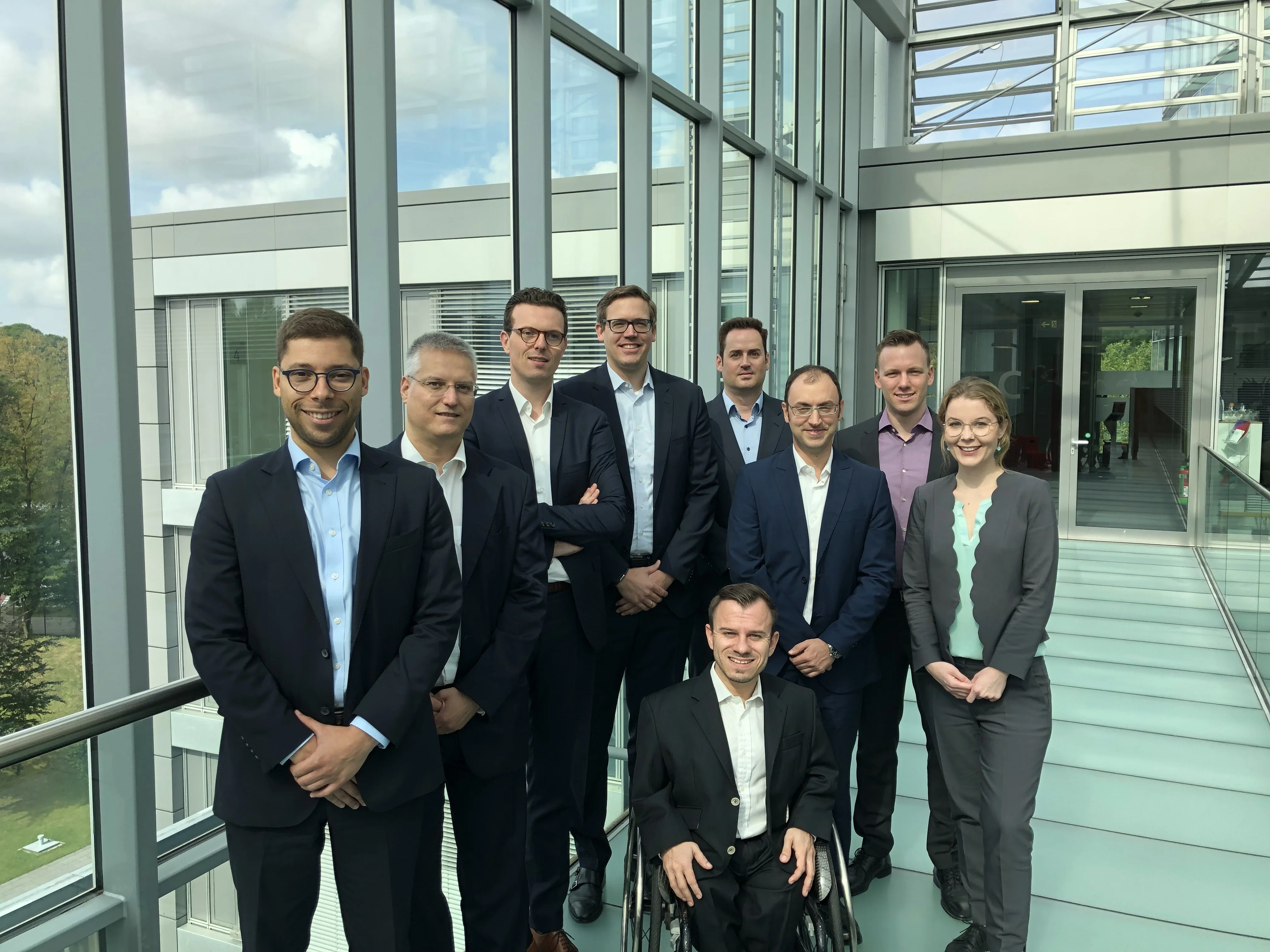Sven Kossack and his team have good reason to be at this year’s e-world. They are responsible for selling the power generated by wind and solar farms across Europe with the help of PPAs (power purchase agreements), for example. Given that ever more PPAs are being concluded in Europe, they are set to be a hot topic at this year’s European industry meet-up. Sven Kossack, Head of Asset Commercialisation Europe, explains why long-term power supply contracts are becoming ever more important for the renewables business.
en:former: Mr. Kossack, you and your team advise customers looking to conclude green PPAs (power purchase agreements), i.e. long-term power supply contracts which businesses use to secure power from wind farms or solar facilities. Is there much interest?
Sven Kossack: PPAs in Europe is a very exciting topic, which is currently gaining considerable traction. We have noted a lot of interest from businesses when it comes to sustainability as a whole. When businesses take a closer look at their carbon footprint, for example, they often realise one thing: there are already a number of ways to reduce greenhouse gas emissions related to electricity procurement. Procuring power from renewables in the long term is one way to cut these emissions.
How does that work exactly?
Customers use these contracts to secure power from onshore and offshore wind farms or solar facilities at a set price for a number of years. In this way they can decarbonise their power consumption – i.e. reduce or even eliminate carbon emissions associated with power production. Businesses also use PPAs to demonstrate to the outside world that they actively support the energy transition and are making moves to fight climate change. The expansion of renewable energy sources such as solar and wind power is an important concern for the customers we talk to.
How do PPAs support the expansion of renewables?
When building new plants, one thing is certain: A long-term power purchase agreement makes the investment decision considerably more attractive. Smaller project developers will find it easier to be given a bank loan, for example. For us at RWE Renewables, one of the world’s leading renewable energy companies, PPAs mostly mean a higher security of investment, which in turn means investors are more willing to part with their money. In layman terms: The more electricity sold now, which is to be produced in the future, the sooner we can build the planned wind farm or solar power plant. And generally speaking: If the demand for PPAs continues to grow, then power producers will also invest more in new plants. In this way, the businesses that conclude PPAs are actually helping drive the expansion of renewable energy.
What kind of customers are interested in PPAs?
On the one hand, these are customers – as I already mentioned – who care about sustainability. They are often companies which manufacture B2C consumer goods who are feeling the pressure from consumers and are, thus, setting themselves ambitious climate targets. On the other hand, we have also had interest from large-scale consumers, which view PPAs as a strategic tool with which they can secure their power supply or rather their power purchase price in the long term. For them, the issue of price certainty is a major factor.
What advantages do PPAs offer in this regard?
PPAs are an opportunity for our customers to secure long-term competitive electricity purchasing conditions. This allows for the necessary planning security, which is particularly important to industrial customers in manufacturing, for whom electricity procurement costs often account for a high proportion of their total outgoings.
Are PPAs an option for any company?
Fundamentally yes. RWE Renewables does not have a minimum power purchase limit. However, for now PPAs are still on the more complex end of the transaction spectrum, from both a buyer and a seller perspective. Accordingly, they are currently more appealing to medium-sized to large electricity buyers. However, we are working on making the contracts less complex and more interesting to a broader range of customers. We are already seeing possible solutions in other European countries: In the UK, for example, several universities that would have been too small individually have joined forces to conclude a joint PPA.
What is the demand like in Germany?
For a long time, the issue of PPAs wasn’t even on the table in Germany, as they are not readily compatible with the EEG system (German Renewable Energy Sources Act). Now, however, we are starting to see the first agreements being finalised. For example, Deutsche Bahn recently concluded a PPA with colleagues from RWE Supply & Trading (RWEST) and our future colleagues from Innogy Renewables to supply an increasing share of its rail traffic with renewable energy. At the same time, we have noticed that demand is rising, driven by a number of large industrial customers.
Is this why you’re headed to e-world?
Exactly. E-world is the most important power trade fair in Germany. Our PPA team will be present at the RWE stand throughout, advising customers together with colleagues from RWE Supply & Trading (RWEST). Collaborating with our colleagues from RWEST gives us the added advantage of even more expertise when it comes to the German market but also, of course, energy markets worldwide.
You mentioned you are working with RWEST. How important are PPAs overall to the new RWE?
As one of the key renewable energy players in the world, we have ample opportunity to invest whilst also already overseeing many projects that are being developed and which we want to and will be implementing in the coming years. As a result, we are able to meet the growing demand for PPAs in various countries as well as implement more projects with the help of PPAs. Generating electricity from renewable sources is becoming ever more cost-effective, making it increasingly interesting for customers to buy electricity generated from renewable sources from us directly.
The en:former will be on site for you again this year and will accompany the E-world energy & water from 11th to 13th February 2020. en:former will report on innovations, trends and congresses in various specials. Stay en:formed!

